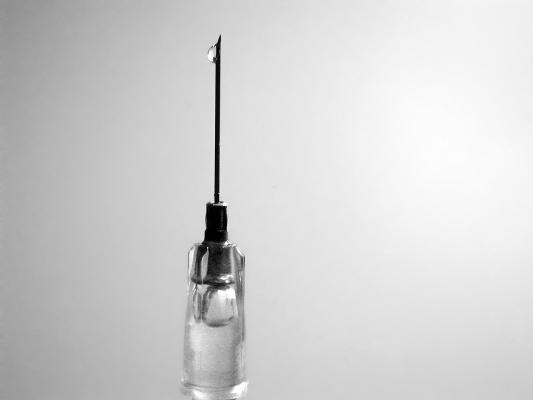
Cangrelor Superior to Clopidogrel in CHAMPION PHOENIX Trial
April 4, 2013 — The experimental anti-clotting drug cangrelor solidly outperformed commonly used clopidogrel in a large global trial of patients who underwent coronary stent procedures, according to data from the phase III CHAMPION PHOENIX clinical study presented at the American College of Cardiology’s 62nd Annual Scientific Session.
Cangrelor and clopidogrel interfere with the P2Y12 receptor, a platelet-surface protein that helps regulate blood clotting. Currently approved drugs in this class are effective in cutting down ischemic events — blood-flow reductions that can cause heart attack and stroke — in patients who need percutaneous coronary intervention (PCI), but they have important clinical limitations: they are slow to take effect, remain active for days and come only in pill form. For patients on recent anti-platelet therapy who need timely coronary intervention, that profile poses risk of surgical bleeding if the drug is still active or risk from postponing surgery until the drug’s effect wears off. Additionally, oral drugs present problems for anyone who urgently needs stenting and is in no condition to swallow or absorb a clot-preventing pill.
Cangrelor is administered intravenously, takes effect rapidly and wears off an hour after the infusion ends.
CHAMPION PHOENIX, a randomized double-blind trial, pitted the novel IV drug cangrelor against the oral clopidogrel standard of care in approximately 11,000 patients at 153 centers around the world. An “all-comers” clinical trial, it included a broad cross-section of patients with every type of acute coronary syndrome, angina and other conditions for which people undergo PCI, as long as they had no recent exposure to a P2Y12 inhibitor and could swallow a pill. Other exclusion criteria included recent use of anti-clotting agents called GP IIb/IIIa inhibitors or fibrinolytics and specific indications of high risk of bleeding.
Cangrelor performed significantly better than clopidogrel across efficacy measures: 4.7 percent vs. 5.9 percent, or a 22 percent reduction in the odds of the primary endpoint, which was composite incidence of death, myocardial infarction, ischemia-driven revascularization or stent thrombosis at 48 hours after randomization. Cangrelor also showed a 38 percent reduction in the odds of the key secondary endpoint, incidence of stent thrombosis at 48 hours. Both treatment arms showed a low, statistically comparable incidence for the safety endpoint of severe bleeding at 48 hours: 0.16 percent vs. 0.11 percent. The efficacy and safety results were consistent in all commonly reported subgroups.
“These are endpoints we worry about a lot in interventional cardiology and cardiology in general,” said Deepak L. Bhatt, M.D., MPH, chief of cardiology at VA Boston Healthcare System, senior physician at Brigham and Women’s Hospital, professor of medicine at Harvard Medical School, Boston and, along with Robert A. Harrington, M.D., chairman of medicine at Stanford University School of Medicine, co-principal investigator. “This study examined a very wide spectrum of patients, which means the results really do apply to a substantial percentage of patients undergoing stent procedures around the world.” The company plans to file for approval with the Food and Drug Administration using data from CHAMPION PHOENIX and the earlier BRIDGE trial.
“The investigators feel the data are compelling,” Bhatt explained. “The data we’ve shown are clear and consistent across all relevant subgroups or patient populations. This drug has several advantages, and nothing out there right now has quite the same biological properties.”
The Medicines Company sponsored the CHAMPION PHOENIX trial and provided a research grant to the Duke Clinical Research Institute for the statistical analyses and event adjudication.
This study was simultaneously published online in the New England Journal of Medicine (NEJM) at the time of presentation in March.
For more information: cardiosource.org


 January 28, 2026
January 28, 2026 









